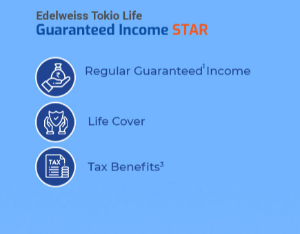What Is Claim Settlement Ratio | Factors
Blog Title
4551 |
Claim Settlement Ratio (CSR) is a key metric that is used to measure the performance of an insurance company. It is a ratio of the number of claims that an insurance company settles to the number of claims it receives. In other words, it is a measure of how efficiently an insurance company processes and settles claims.
A high CSR of an insurance company indicates that the company is settling many claims and is therefore considered to be more reliable and trustworthy. A low CSR, on the other hand, suggests that the insurance company is not settling claims efficiently and may be facing financial difficulties.
CSR is important for policyholders as it gives them an idea of how likely they are to receive a payout in the event of a claim. It also helps them choose between different insurance companies. Policyholders should look for insurance companies with a high CSR, as this indicates that the company is more likely to settle claims in a timely and efficient manner.
How is CSR Calculated?
The formula for CSR is:
Claim Settlement Ratio = (Number of claims settled by the insurer in a year/ Number of claims the insurer received in a year) X 100
For example, if an insurer received 1000 claims in a year but only settled 900, then their CSR would be:
CSR = (900/1000) X 100 = 90%
Factors that can Affect Claim Settlement Ratio of a Company
There are several factors that can affect an insurance company's CSR.
- One of the most important factors is the company's financial stability. Insurance companies with a strong financial position are more likely to be able to settle claims promptly and efficiently.
- Additionally, companies with a good reputation and a long history of providing insurance services are also more likely to have a high CSR.
- Another important factor that can affect CSR is the type of insurance being offered. Some types of insurance, such as health insurance, are more complex and may take longer to process and settle claims. This can result in a lower CSR for these types of insurance.
- The claims process also plays an important role in determining an insurance company's CSR. A company that has a streamlined claims process, with clear and concise instructions for policyholders, is more likely to settle claims quickly and efficiently. This can lead to a higher Claim Settlement Ratio.
Drawbacks of Claim Settlement ratio
Claim Settlement Ratio can be affected by the company's internal claims settlement practices. Some insurance companies may use underhanded tactics to avoid settling claims or to settle them for less than they are worth. This can result in a lower CSR for the insurer, and the nominees of the policy are left with unpaid or underpaid claims that are insufficient to meet their needs.
Another downside of CSR is that it can be unreliable for newer insurance providers. For example, a new insurance company may have a high claim settlement ratio of 97% (97 claims settled out of 100), but if they have only received a small number of claims compared to other company, it may not be as reliable. Additionally, the number of claims pending or rejected also needs to be considered. A policyholder should not solely rely on the claim settlement ratio, but also consider the number of claims received and the size and age of the insurance company.
Is CSR the Only Indicator to Consider for Life Insurance Policies?
Claim settlement ratio is one of the important indicators to consider while looking for a good life insurance provider. Two other indicators to keep in mind while buying insurance is the insurer’s solvency ratio and their customer satisfaction rating.
- Customer Satisfaction- The easiest way to gauge the quality of any product or business is to check their customer satisfaction rating. There are number websites where you can find reviews and ratings for the major insurance providers in India. Positive reviews are generally a good indicator that the insurance provider is respected and trusted by their customers.
- Solvency Ratio- Another important ratio to keep in mind is the ‘solvency ratio’ of an insurance provider. Solvency ratio is used to gauge the financial health of a company. Higher the solvency ratio of a company the less likely it is to go bankrupt. A solvency ratio below 150% is an indicator of poor financial health.
Avoid Claim Rejection with These Steps!
Claim rejection can be a truly stressful experience for anyone. Moreover, when a claim is rejected without cause, people start to mistrust the insurance industry as a whole. However, sometimes insurance providers have a good reason to reject a claim. A reputable insurance provider will only reject a claim if they find a genuine discrepancy during the claim settlement process. If you are worried about your claim being rejected, then follow the steps given below to maximise your chances for a quick and stress-free claim settlement.
- Be honest during disclosure: This is a step that must be taken before the policy is even purchased. The policyholder should be completely honest about their medical history and lifestyle habits. If the insurer finds any falsehood later down the line, then there is a high chance that claims made on the policy will be rejected.
- Know what is covered by your policy: Unfortunately, not all eventualities are covered under a single insurance policy. Each policy has a set of exceptions that are clearly mentioned in the terms and conditions. If the insured person passed away due to any of the events mentioned in the exceptions, then any claim made on the policy will be invalid.
- File your claim as soon as possible: While there is no time limit to making a claim on an insurance policy, you should ideally intimate the insurer about your claim as soon as you possibly can. The insurer can only begin processing your claim after you contact them first. A prompt claim initiation leads to a quick claim settlement.
- Submit all required documents: You will need to submit multiple documents to ensure that your claim is processed successfully. Mandatory documents include your (nominee) identity proof, the insured person’s death certificate, original policy document, and FIR in case of unnatural death. Moreover, you might need to submit any additional document requested by your insurance provider.
- Make sure that the nominee information is accurate: Policyholders should ensure that the details of their nominees are up to date on the policy document. If a nominee changes their address or name, then the insurance provider should be notified immediately. Moreover, if a nominee passes away before the policyholder, then a new nominee should be added to the policy as soon as possible.
Process to File Claims
The process of claim settlement is relatively easy for policyholders, with multiple options for reporting claims such as online, at branches, central office, helpline, SMS, or email. You can report a Claim at any of our touchpoints:
- Online at https://www.edelweisstokio.in/claim/intimation
- Alternatively, you can call us on our Toll Free 1800 212 1212 Or, Email us at claims@edelweisstokio.in
- Visit our nearest branch (When Operational)
- Write to us at: Edelweiss Tokio Life Insurance Co. Ltd. Claims Team, 6th Floor, Tower 3, B wing, Kohinoor City, Kirol Road, Kurla (w), Mumbai – 400070.
To ensure a swift claim approval process, it is recommended that policyholders submit all necessary documents as soon as possible. The goal of the claim settlement process should be to make it as easy and stress-free as possible for the policyholder and their family. With advancements in technology, insurers are now able to settle claims more quickly.
Claims Processing Made Easy in 3 Simple Steps
- Reach Out to Us - Send us an intimation regarding the death claim
- Paperwork for Claim - Submit the required documents
- Decision on Claim - Sit back while we review & get back
If you want to know an exact checklist required for filing various claims such as Death Claim, Critical Illness/Hospital Cash Benefit Claim, Group Claim, Disability Claim etc. click here.
In conclusion, Claim Settlement Ratio is one of the important metric for measuring the performance of an insurance company. It is a ratio of the number of claims settled to the number of claims received. Policyholders should look for insurance companies with a high CSR, as this indicates that the company is more likely to settle claims in a timely and efficient manner. Factors that can affect an insurance company's CSR include its financial stability, type of insurance offered, claims process, and claims settlement practices.
Aastha Mestry - Portfolio Manager
An Author and a Full-Time Portfolio Manager, Aastha has 6 years of experience working in the Insurance Industry with businesses globally. With a profound interest in traveling, Aastha also loves to blog in her free time.












